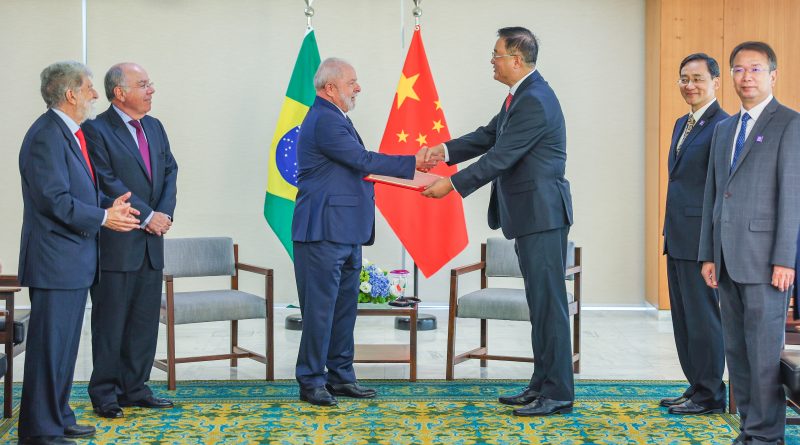Brazilian President Lula da Silva’s First 100 Days
Emmet Bikales
Staff Writer
After defeating far-right incumbent Jair Bolsonaro in Brazil’s October 2022 election, Luiz Inacio Lula da Silva returned triumphantly to Brasilia this year to serve his third term as president. Known affectionately to his supporters as “Lula,” the left-wing populist who previously held the presidency between 2003 and 2010 has been steadily working to undo the legacy of his predecessor, whose supporters stormed the capital complex in an attempted coup in January.
In his first 100 days back in office, Lula has pursued closer ties with China and Russia abroad, while his domestic policy has included a bevy of progressive reforms aimed at meeting the challenges of rising poverty and environmental degradation. These policies include the reactivation of policies previously initiated by his Workers’ Party, including expansions to family welfare, public housing, and medical care, according to the Associated Press. Lula has also introduced new environmental protections for the Amazon rainforest and its indigenous peoples, in sharp contrast to the campaign of deregulation conducted under Bolsonaro.
Another challenge for the returning President is undoing Bolsonaro’s autocratic restructuring of the Brazilian government itself. Lula has enlisted the legislature and judiciary to help him untether the pro-Bolsonaro military from politics and has proposed new fiscal rules to sort out recurring budget deficits that arose during the previous administration.
Despite these promising developments, Lula’s path to instituting his full agenda has been slow and difficult, according to Al Jazeera. The President lacks a solid base in parliament, and he governs a society more jaded and conservative than when he first came to power in 2003. His political capital has been steadily diminished by an ongoing spat with Brazil’s Central Bank over interest rates, minimal progress in climate initiatives, and accusations of corruption against multiple ministers in his government. In a particularly embarrassing scandal, Lula’s newly appointed head of the Institutional Security Bureau was forced to resign after surveillance footage showed him participating in the January riot at the capital complex, according to the Guardian. A Datafolha poll showed that only 38 percent of Brazilians approved of Lula’s administration, showing both the lingering popularity of Bolsonaro and cynicism regarding the extent of Lula’s achievements so far.
Pursuant to his foreign policy agenda, Lula has attempted to form closer diplomatic ties with China, reversing the pro-Western course charted by his predecessor, according to the Associated Press. In an April visit to Beijing, he signed numerous bilateral agreements with the East Asian country and repeatedly spoke of the two nations, both members of the BRICS group of developing countries, as natural partners on the world stage.
Brazil and China’s strengthened ties under Lula have also extended to the economic sector. China is already Brazil’s largest trade partner, with Brazil selling tens of billions of dollars of foodstuffs and natural materials to China each year. Chinese companies have also increasingly expressed interest in outsourcing industrial production to the South American country. In his recent visit to Beijing, Lula spoke of the importance that Chinese investment will play in filling the hole in Brazilian industry created by the exit of numerous American companies, according to the Associated Press. The two nations have also agreed to use the Chinese yuan rather than the dollar in their bilateral commerce.
Lula has also attempted to cast himself as a peacemaker, proposing that neutral nations such as Brazil and China should work together to mediate a peace deal in the ongoing Russo-Ukrainian War, according to Al Jazeera. Lula has adopted a more Moscow-friendly stance than most other liberal democratic leaders. After returning from China, Lula hosted Russian Foreign Minister Sergei Lavrov in Brasilia to discuss trade between their respective countries. Last week, he suggested to journalists that Ukraine should give up its claim to Crimea to make peace with Russia and expressed that Brazil is “trying to build a group of countries without any involvement in the war, that don’t want the war and defend world peace to have a discussion with both Russia and Ukraine.”
This new diplomatic direction is another reversal from the policies of Bolsonaro, who eschewed China in favor of closer ties with the United States. Lula’s foreign policy is rooted in the concept of “South-South cooperation,” which emphasizes diverse trade and alliances with emerging states to reduce reliance on the United States and European Union, according to The Diplomat. Lula has repeatedly expressed that he is uninterested in involving Brazil in the rivalries between the world’s most powerful states, choosing instead to form friendships based on which country is most willing to invest in Brazil’s economy and infrastructure.


